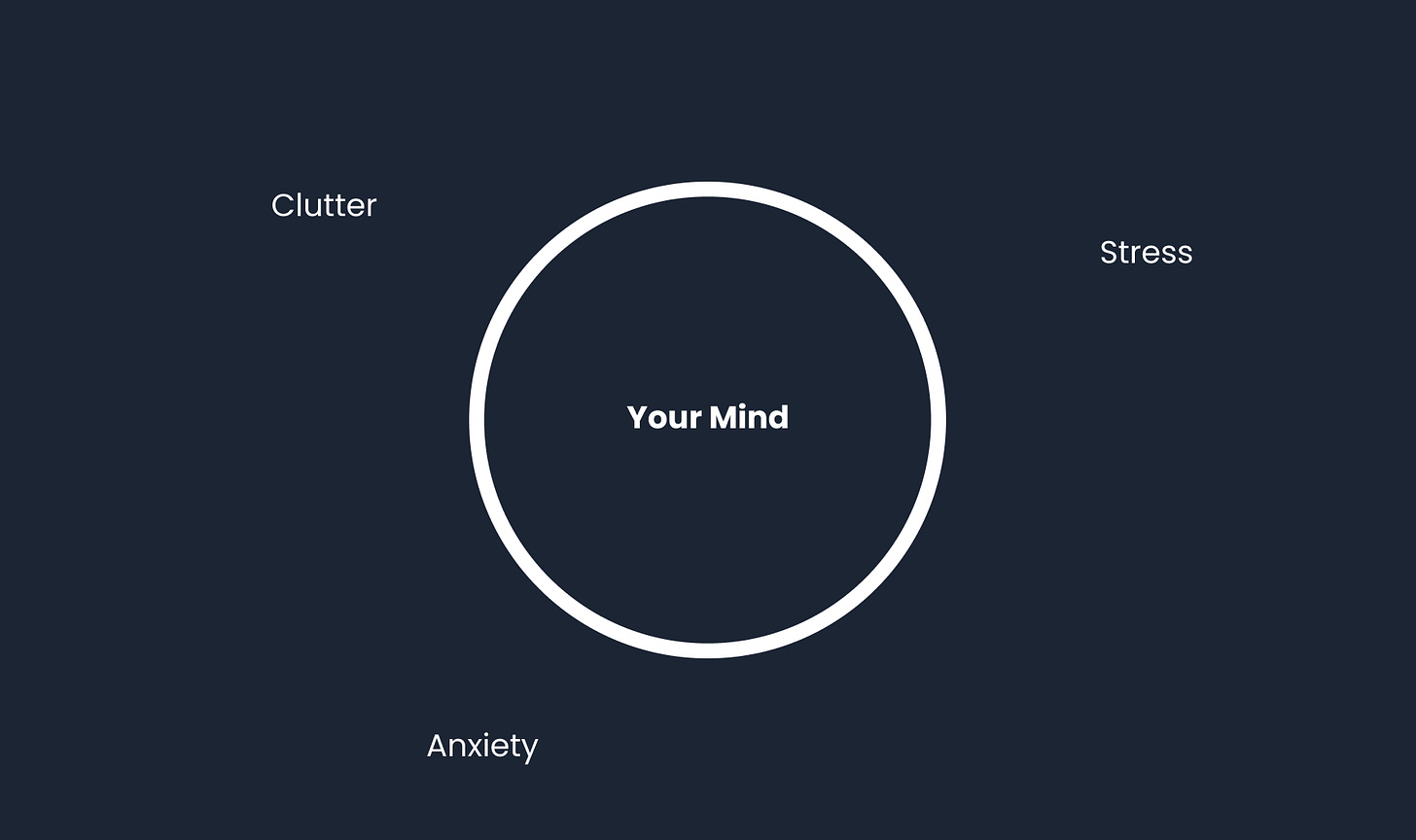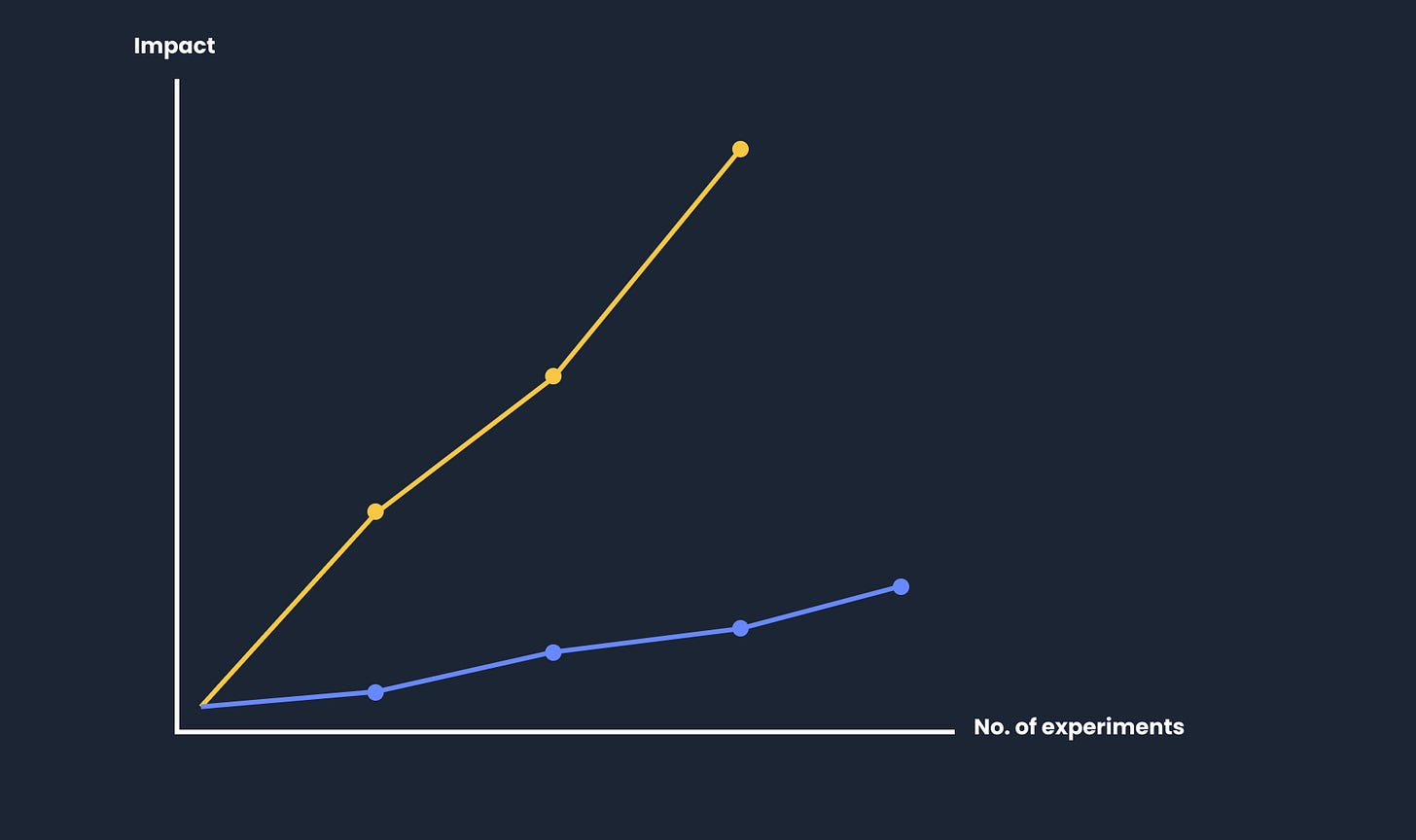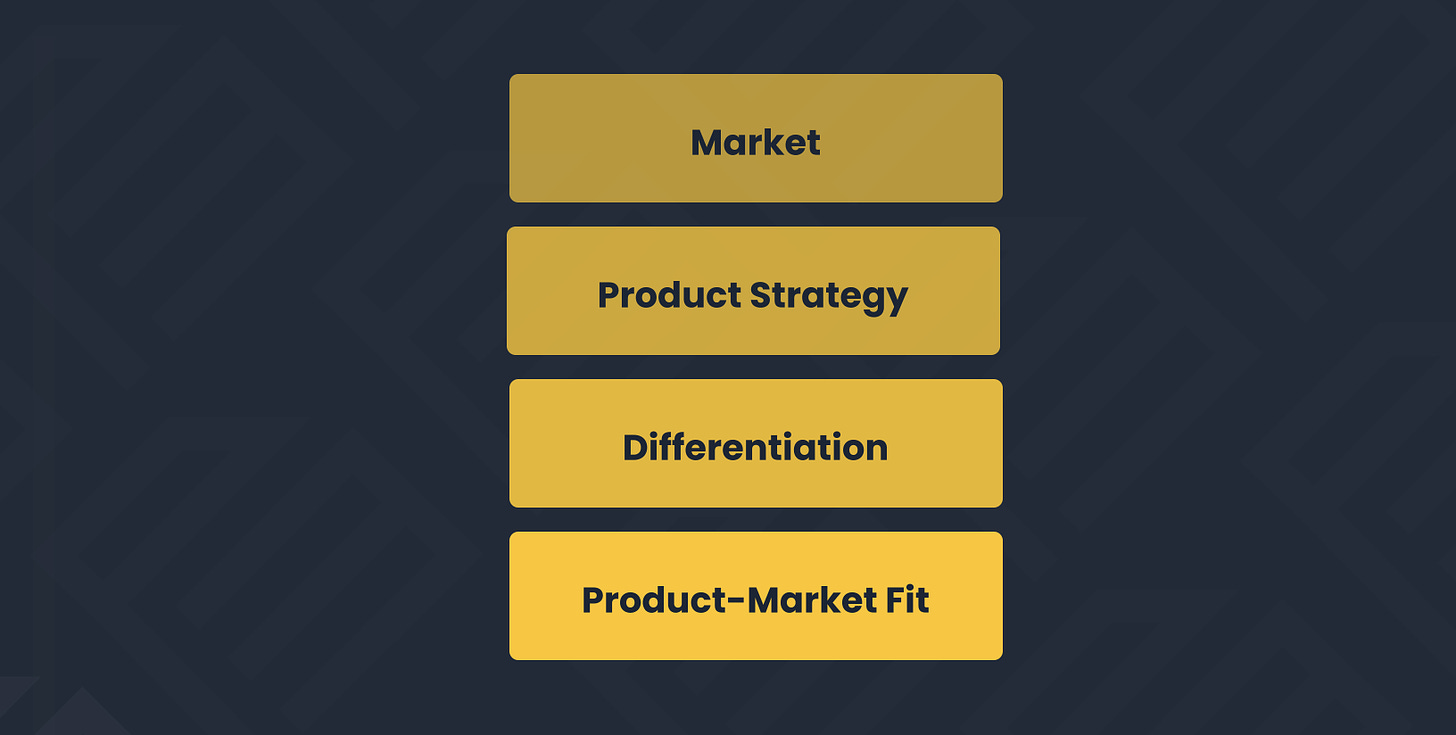AI Will Radically Change The Nature of Product Management • Pt 2/2
How to adapt to become a Product Scientist
In the previous article, I outlined how product management will radically change as AI becomes ubiquitous in our work lives.
Specifically, I argued that “the work” will largely become irrelevant with automation, that ideas become all-important & that PMs will have to understand how to create defensive moats around their products in order to not be copied.
In this article, I will outline specific, actionable steps you can take in order to not just remain relevant in the future, but to build products that shape that future - to become a Future Builder, rather than an irrelevant Product Manager.
Here are the 4 essential skills you need to start building right now to thrive in an AI-driven future:
Cultivate creativity
Understand how to run effective experiments
Facilitate ideation workshops
Understand product fundamentals
1/4 Cultivate Creativity
AI can help automate tasks. It can even help as a sparring partner to boost creativity (I use Copy.ai at times to help generate possible topics for my content, for example).
However, that ability to draw connections between seemingly disparate, unrelated topics? To take risks & make predictions? That is likely to remain the domain of the human brain.
And something you should cultivate.
Most MBAs or business articles brush over the fact that innovative ideas are not easy to come by! Ideas are hard.
Also, nor are some people born creative & others not. Creativity comes from cultivating habits & systems of thinking that provide fertile ground for ideas to emerge.
Specifically, there are two areas you should focus on to cultivate creativity:
Mind management: Are you creating mental space to think freely? Do you allow yourself to get bored? Do you focus on seeing the world in a positive light? Do you focus on the future or the past? A creative mind is one that is allowed to wander, to make connections, to draw insight where others don’t see it
Time management: Are you proactively carving out space for creativity? Or constantly in meetings & busying yourself with more immediate worries? How are you using your 100 Blocks each day? A busy, preoccupied mind is not a creative mind
Actionable Advice:
For mind management, I suggest starting a meditation or journaling habit. I’ve done both for 9 years now & you will not only be a happier, calmer person, but will be far more creative as well by freeing the mind of repetitive cycles of anxiety, as well as far better at detachment & observation of your own thoughts.
For time management, two high impact tips? Prioritise sleep (eat early, exercise 30mins per day, reduce light exposure at night, have a fixed bedtime, no caffeine after 11am) & no meetings for the first 90mins of your day. Block this time out to focus on creative and/or strategic work whilst your mind is fresh.
👉 Download my free book for specific mind & time management tactics
2/4 Understand How to Run Effective Experiments
Execution will become largely obsolete in the future, as discussed in Part 1.
Rather than massive development teams & complex project management, you will either input what you want an AI tool to build (e.g. “build a signup workflow”) or will work with a single developer who defines the input themselves.
This means it will be very easy to run product experiments to test out your ideas in minutes, rather than weeks or months.
However, just because you can build things quickly does not necessarily mean you will build the right things.
One key skill for Future Builders?
Understanding how to run effective product experiments to test out your ideas.
There are 3 specific elements to running effective product experiments that are extremely valuable now & will become even more valuable in an AI-driven world:
Making big bets: Even now, running an experiment isn’t that complicated. Any Product Manager can think of a simple experiment to run, such as testing whether your buttons convert higher when green v. blue. The hard part? Running an effective experiment i.e. a big bet that can deliver significant results. In the future, an ability to work out what to test - for example, how to test whether a target user values a specific solution (& is willing to pay for it) - will allow you to deliver a huge amount of value in a matter of hours
Interpret data: User data will always be messy & nuanced. AI will help deliver insights from analytics data. Even aggregate scripts from user interviews & feedback forms into neat themes. However, you will still need to read through that data to gain insight & make the kinds of leaps of logic that lead to innovative ideas - as well as identify what might be missing or left unsaid by the data! Plus work out how to make sure your data is clean despite potentially a lot of other product teams all experimenting at the same time!
Speed of experimentation: One of - if not the - defining factor in product success is speed of experimentation (even in 2017, Facebook was famously running 10,000 experiments per day!). Although much work will be automated, in a world where all work is automated, suddenly everyone can move extremely quickly. That means running potentially high-impact experiments, it means working out ways to get results in minutes or days (not weeks), it means running multiple experiments at once (whilst not overlapping & muddying the results)
Actionable Advice:
Simple: Start running experiments!
For some PMs, that means shifting from a fixed roadmap mindset to one where we think of each feature or idea as an experiment - a bet to place. Use this Strategic Roadmap template or apply this Product Bets framework.
For those working in a top-down environment with no autonomy to run experiments, you need to work on a side project in order to get those repetitions. We help PMs build a real product from zero to revenue during Prod MBA to get that real-world experience, but there’s no reason you shouldn’t build a product yourself based on sequential experiments.
Effective experimentation requires repetition. So maximise your repetitions.
3/4 Facilitate Ideation Workshops
Where everyone has access to the same AI tools, everyone will end up with the same results.
For example, say you ask your AI tool to “come up with a differentiated feature for our project management product”. What are the chances that the AI tool has suggested the same feature to another team? If we are all using the same tools with the same data input, it will either struggle to come up with a good idea, or suggest the same idea to many other teams.
In the future, you will need to cultivate the uniquely valuable skill of humans to create leaps of logic & come up with tangential insights that AI still struggles to achieve.
Many AI proponents will say “well, it already creates amazing, unique artwork”. True. But this artwork ultimately reflects existing work it has analysed, not, for example, creating entirely unique new genres.
Now, not every product innovation need - nor should - try to reinvent the wheel. However, to differentiate a product, you will still need to come up with creative, not-always-obvious ways of doing so. And AI will do an excellent job of putting together a product concept based on best practice & competitor benchmarking.
However, considering the extremely complex nature of the human brain, I believe AI will not be able to replicate the same level of human creativity. It will still need that leap of logic from us to help the product truly stand out.
Actionable Advice:
You will need a specific way to draw out creativity from your teams. The best way to do that is to facilitate ideation workshops i.e. timed sessions designed to help generate & evaluate product ideas.
We spend a whole week during Prod MBA on this topic, but here’s a great intro to running a simple ideation workshop & you can check out our free, award-winning Miro workshop templates here to get started.
4/4 Understand Product Fundamentals
One thing will not change. That is the fundamentals that any successful product is built on:
An understanding of your target customer, of how to come up with a unique product offer, of how to translate a product offer into a specific solution or set of solutions that deliver a lot of user value & business value, of domain expertise.
Actionable Advice:
Product management isn’t really about learning new things. It’s about mastering the fundamentals. Therefore, I would suggest this article on validating your ideal customer, this article on building a winning product strategy, this one on differentiation strategies & this one on achieving Product-Market Fit.
Conclusion
AI has come upon us quickly. Chat GPT has suddenly made us product people aware that there will be a shift in the nature of work. Yet it hasn’t quite arrived yet at the stage where that shift has happened - where AI is embedded into almost every product we engage with.
That world will come upon us extremely quickly, however. Therefore you do not want to find yourself unprepared, overwhelmed, feeling irrelevant.
Plant a tree before you need the shade, as I like to say.
Better to keep an eye on upcoming trends. Test out the latest iteration of ChatGPT, of content creation tools, of other AI use cases as they multiply. To see where these tools are adding value - and how.
Do that & you’ll be able to not just survive in an AI-driven world, but thrive.







